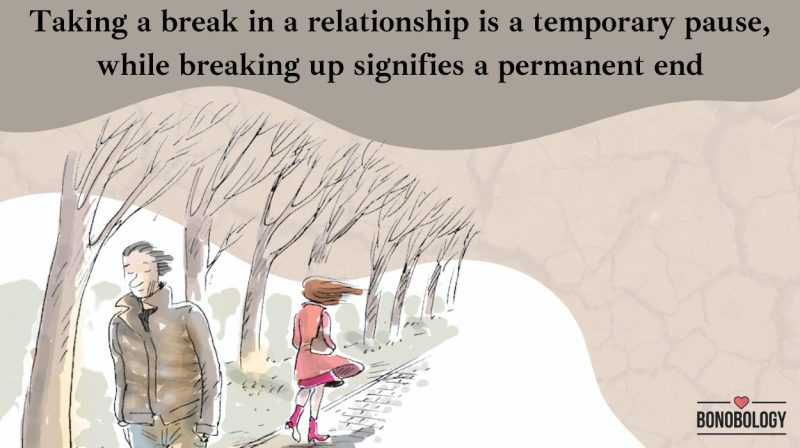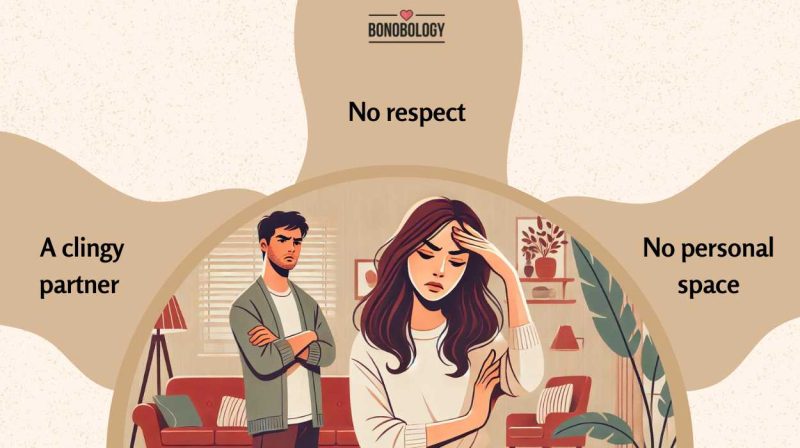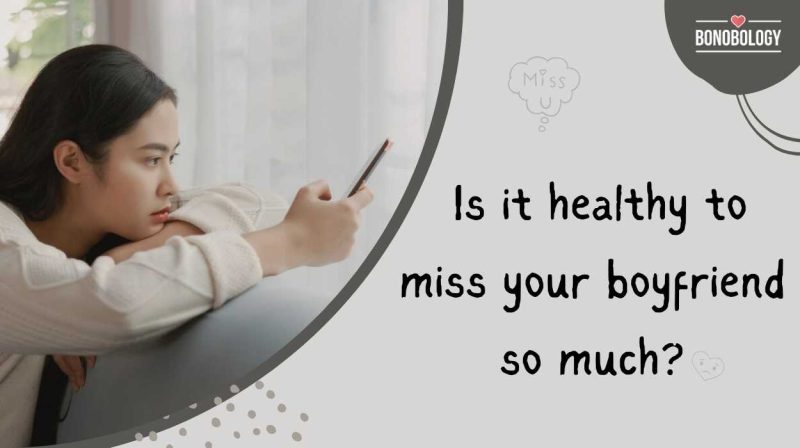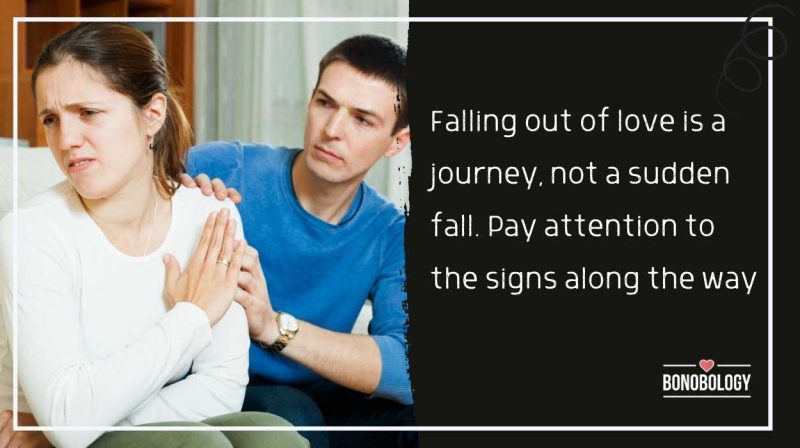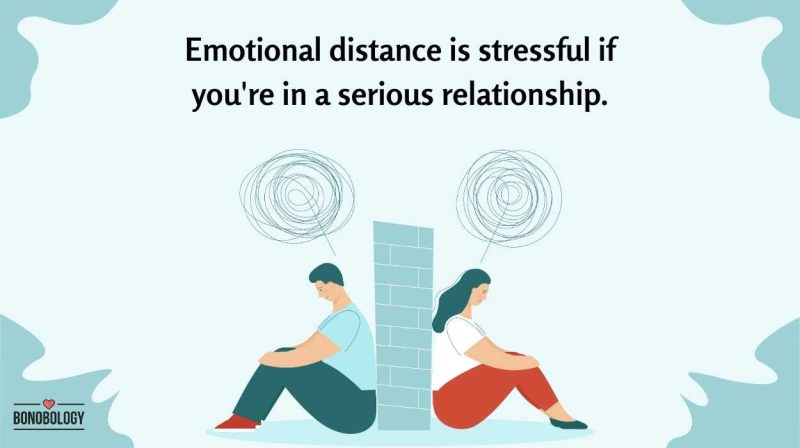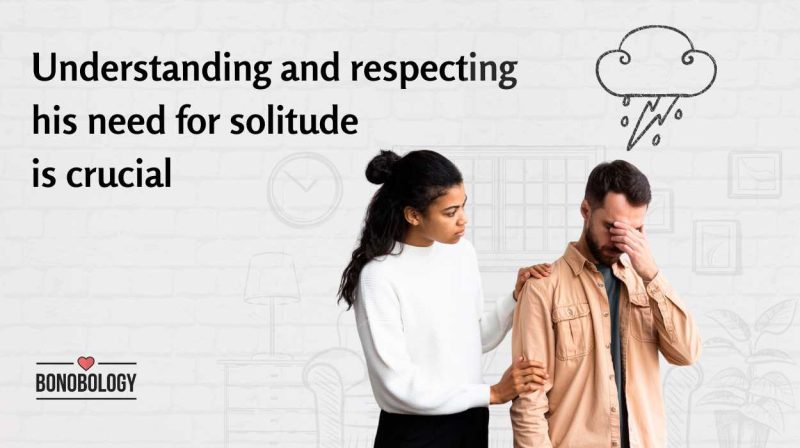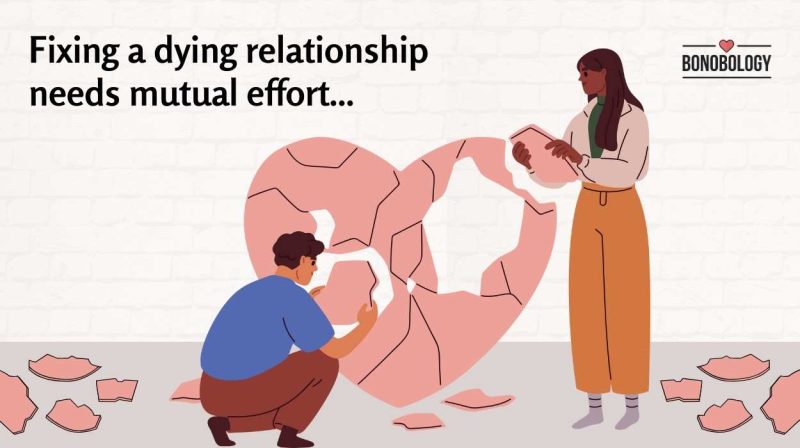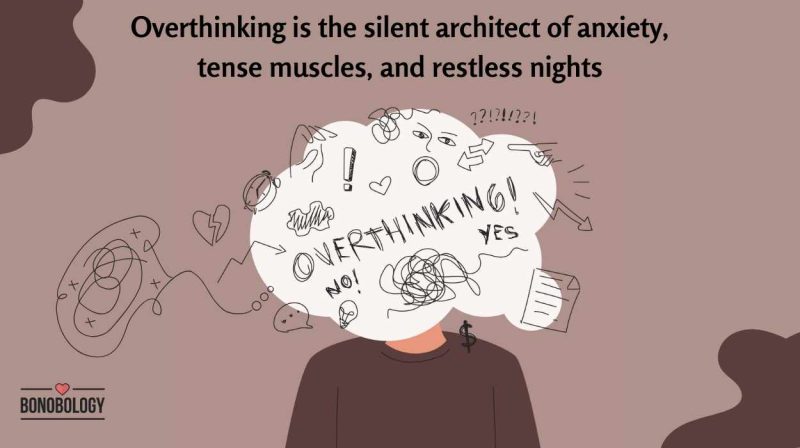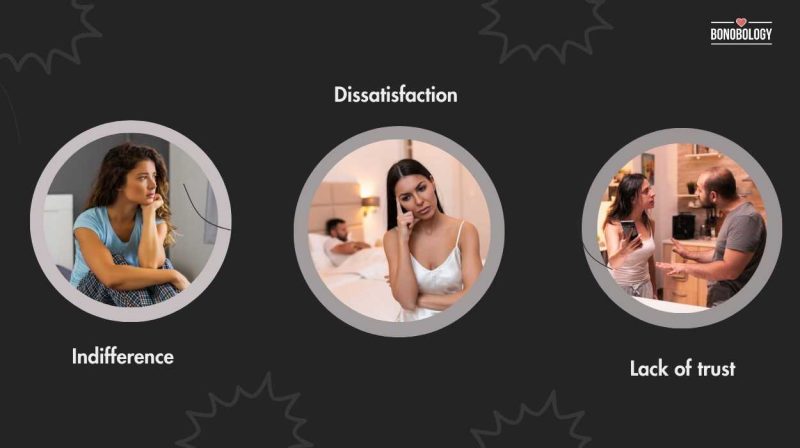Our responses and nature towards intimacy, love and relationships are often a product of tendencies that we developed in early childhood. So as paradoxical as it sounds, avoidant attachment is a developmental wrong-turn that one probably started fostering at a young age without realizing it.
If you’re a sappy romantic, have a ‘Man of Steel’ persona when a breakup hits you or get jittery about the idea of dating completely – it probably has more to do with your childhood than you think. Maybe you’ve always run from relationships because you never came across a good one while growing up. Or you’re a hopeless romantic because you spent too much time watching rom-coms with your mother after soccer practice.
That being said, in a similar way, one develops attachment styles to people based on cues from their formative years. Avoidant attachment is one of them. Even therapists often dig into understanding attachment styles of individuals when dealing with couples during counseling to rightfully uncover what makes them the way that they are. But what is this attachment style exactly and why on earth does it sound so scary? Let’s find out.
Relationship Attachment Styles
Table of Contents
Relationship attachment styles were developed on the basis of understanding how a child responds to their caregivers. Many studies about attachment styles have been based on a child’s primary response to their parents. Thus, our nature towards other people is a massive byproduct of our relationship with our parents.
In fact, there are direct results of attachment in our daily life activities. We now have four attachment styles that we can base our proclivities on. The avoidant attachment style is only one of four attachment styles. The rest are secure, anxious and fearful.
Avoidant attachment
Someone with avoidant attachment chooses freedom over love and relationships any day. They don’t fancy being too close to anyone and are wary of depending on others. They may appear happy-go-lucky on the outside, seemingly appearing as if they were born to be single, but in reality, they are terrified on the inside.

Fearful avoidant attachment
Fearful avoidant attachment makes one insecure and afraid to be loved. They do not respond well to expressions of affection and feel threatened pretty quickly. Being afraid of being hurt, it doesn’t take them too long to hear alarm bells and run in the other direction.
Anxious attachment
People with anxious attachment often overthink their relationships, but deep inside, they have a much stronger desire to be close to a partner. They want to hold onto somebody as much as they can. However, they are just as afraid of being abandoned as those with fearful avoidant attachment.
Secure attachment
Secure attachment is the most sorted of the lot, one that enjoys his independence and autonomy in relationships. While retaining their individuality, they are still able to create lasting connections and show no signs of being commitment-phobes.
Avoidant Attachment Style Causes
Parents are the center-point of determining how attachment styles sprout in a person. Loving someone with avoidant attachment can be slightly dark, because a person with this attachment style lacked the basic requirements of nurture and care that they needed in childhood.
When a provider is unresponsive, a careless parental figure, absent or negligent – a child may start showing signs of avoidant attachment. This causes profound anxiety and sadness within them, which further compels them to rely upon themselves. In today’s era, roughly 30% of people show avoidant attachment patterns in daily life. Here are some activities that parents may do knowingly or unknowingly to trigger avoidant attachment in their child’s adulthood later on.
- Neglect: It can start with something as simple as not asking one’s child about their day to leaving them alone by themselves for hours
- Not taking the child’s problems seriously: Asking them to ‘grow up’ or develop maturity is one of the biggest parenting mistakes. Instead of teaching them a constructive way of dealing with their problems, the parent brushes away any concerns
- Disregarding nutritional and medical needs: Having no concern about a child’s physical health in terms of diet or ignoring their physical ailments
- Lack of praise: Not admiring a child’s achievements or encouraging them enough can make them feel like they are not good enough. Validating children is essential to making them feel safe
- Withholding physical affection: Physical affection goes a long way in making a child feel secure and cared for. When a parent withholds the latter like cuddles, kisses or hugs – the child may show symptoms of avoidant attachment
Related Reading: How Being A Father Changed My Life For The Better
Signs Of Avoidant Attachment
Also known as the ‘insecure’ avoidant style, dating somebody with avoidant attachment can quickly take a toll on your relationship. Their mystery, their walls and their refusal to romanticize things can quickly become nerve-wracking for the other person. Even though they’re attractive and charming on all their dates, seem ready for a relationship and also come across as trustworthy and loyal – they still might not be able to give you the security that you need in a long-lasting relationship.
Since they themselves have never experienced the cocoon of comfort that one does when in a healthy relationship, they simply do not know how to give it to someone else. You may be in love and you may want to call on them at home. But when you ring the bell and wait on the porch, it’s like nobody ever opens the door.
For someone who grew up with these long-standing issues, which later on manifest as avoidant attachment issues, handling a relationship is difficult for them too. Now if you are dating someone with this relationship attachment style, read below. Here are a few ways in which an avoidant attachment relationship works.
1. They don’t know how to love
Don’t be fooled by their witticisms and charms. Their sturdy exterior is hardly a reflection of their empty interior. They might seem to carry themselves exceptionally well, but only because they’ve had to master the art of self-dependence at a very young age. This has made them tougher than you can imagine, but on the inside, they are scared of being hurt all the time.
So, when one does date them, it may feel like they suddenly have too many barriers. From the way they shift their glance to how they never reveal anything about themselves, it might feel awkward to deal with them. Since they don’t know how to be cared for, they’ve also never learnt how to actually do it themselves.

2. They can blow hot and blow cold
One minute they seem like their entire focus is on you and the very next, they’ve walked off and started chatting with an old friend. Just because they’re terrible at showing affection, doesn’t mean that their heart is an empty vase. They do love deeply and their fears do not take away from the honesty in their emotions, but it can be easy to misunderstand them.
When they are in a serious relationship, their patterns might often be confusing and even annoying at times. They probably want to spend every waking moment with, you but will suddenly shy away and start washing the dishes vigorously the moment you ask them a personal question.
3. A person with dismissive avoidant attachment might think you are clingy
We say dismissive because we really mean it. Responding to affection has never been their forte or even something that they enjoy for that matter. So, when you give it to them, their natural reflex is to probably just toss it away. This doesn’t come from lack of love, but rather from the space of not knowing what to do. You need to remember that you are dealing with someone who has grown up with an impulse to flee.
Thus, things like PDA, sweet kisses on the forehead, intertwining fingers when holding hands, these are just not their strong suit. Over time, they may learn their importance and appreciate the fuzzy feeling of intimacy, but you can expect them to act startled if you rope them in for a kiss in the middle of the mall.
4. They are not good at resolving conflicts
Conflict resolution takes work and is not a simple burn that needs an overnight ointment. It needs attention, care and love – things that people with avoidant attachment are attuned to blocking away. This is why, when you start pressing on a concern that is bothering you, your complaints might just go unheard.
It’s not that they don’t respect you, but they are just unable to see the issue. You might say things like, “You’ve been so distant all week – you never called me once!”, and they just won’t know how to respond. Sentimentality just doesn’t come as naturally to them so expect to find them dumbfounded when you raise these concerns.
5. People with avoidant attachment have massive trust issues
And they reveal themselves in a variety of ways. Your partner may eventually succumb to trusting you because that’s what it takes to be in a good relationship. Choosing a relationship while having avoidant attachment issues is in itself, a big deal and takes a decent amount of trust from their side. But in other cases, do not expect them to warm up to people as easily as they did with you.
Their childhood disappointments have made them feel defenseless and helpless. Their primary caregivers have failed all their expectations. So, their hard exterior juts out conspicuously as they are forever troubled by the idea of getting hurt again.
6. It takes a while for them to acknowledge a long-term relationship
Because their relationship triggers are so many, finding reasons to leave a relationship comes easily to them. In fact, they are probably always looking for more reasons to leave than to stay. With avoidant attachment, it’s hard to practice commitment, because in a commitment, you have to give your all.
Which is why casual encounters, one-night stands and no strings attached encounters are more their speed when it comes to dating. They prefer people who can maintain an emotional distance and stay independent on their own.

7. Even when in a serious relationship with avoidant attachment, they will never ask you for help
The very foundation of relationships is finding somebody who can hold out an umbrella for you in the rain. So, when one has grown close to someone else and you two are indeed on the cusp of a serious relationship, you’ll hope they reach out to you on days melancholy hits them.
But they won’t. They’ve always wiped their tears on their own and don’t need you to hand them a box of tissues. So, you might fight tooth and nail to try to break down their walls, hope for them to show you a side of them you’ve never seen before – but that struggle will be long and hard.

8. Their independence always shines through
And sometimes in really beautiful ways. Not just in the workplace or in their dating life. But you’ll see it in every inch of their being, just how self-reliant they are. They don’t get goosebumps in the darkness, because they’ve grown comfortable in it. Neither are they afraid of being pricked by thorns, because they’re so adept at bandaging.
From the way they are occupied in their own heads while brewing a cup of coffee to how they handle crises at work, you are indeed dating an independent woman or man when you are in an avoidant attachment relationship.
Prevention And Treatment Of Avoidant Attachment Style
Since the avoidant attachment style develops right from childhood, its prevention should also be traced back to there. This attachment style has to do primarily with one’s relationship with one’s parents. They only way to stop one’s child from developing this, is by being a concerned and attentive parent to them.
If a parent is sensitive to their child’s needs, allows them to feel the full spectrum of emotions and is caring towards their child, that may just be enough for the prevention of this attachment style. Instead of reprimanding or berating the child too much, the parent should consider nurturing them with kind words and understanding. If not, it is possible that the child has toxic parents and will undoubtedly develop unhealthy coping mechanisms in the future.
Moreover, the only way to really recognize having this attachment style is by approaching a counselor or therapist and taking their guidance on the same. With their expertise, one may know exactly where the problem is stemming from and how to overcome that in order to improve future relationships. Lucky for you, Bonobology has a skilled panel of counselors who are all only a click away.
So there you go. That’s what it’s like – loving someone with avoidant attachment. We can’t choose who we fall for, but we can choose to try to understand them better in order to love them the right way. It may seem like a tough thing to do and almost like a really bad bet.
But since you can’t really turn away love like that, you can at least make it a little bit better.
FAQs
An avoidant does not show love in the mainstream way. You’ll see them being extremely independent and having a fear of commitment. They may love you, but will not express it well as they don’t talk about their feelings much.
Not monumentally. With therapy and counseling, one can get over their issues of dismissive avoidant attachment and learn how to be in a more functional relationship. However, one cannot completely let go of everything that contributed to designing their nature.
Eventually, yes. There might be a few bumps along the way and some major conflicts in the very beginning of a relationship with a person who has avoidant attachment issues. But with time, consistency, effort and tons of understanding, a successful relationship is completely possible.
Ambivalent Attachment Style – How Does It Harm Your Relationship?
11 Relationship Qualities That Are a Must Have For A Happy Life
Your contribution does not constitute a charitable donation. It will allow Bonobology to continue bringing you new and up-to-date information in our pursuit of helping anyone in the world to learn how to do anything.




